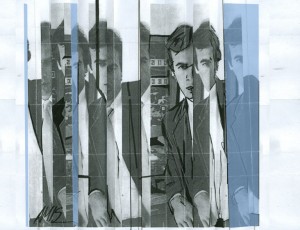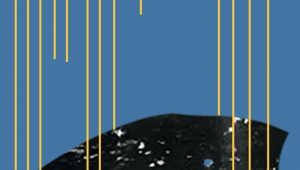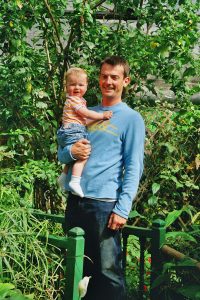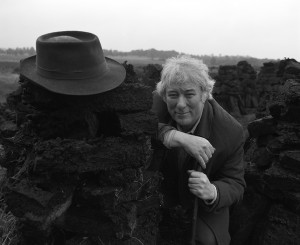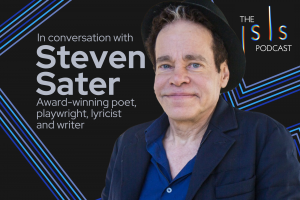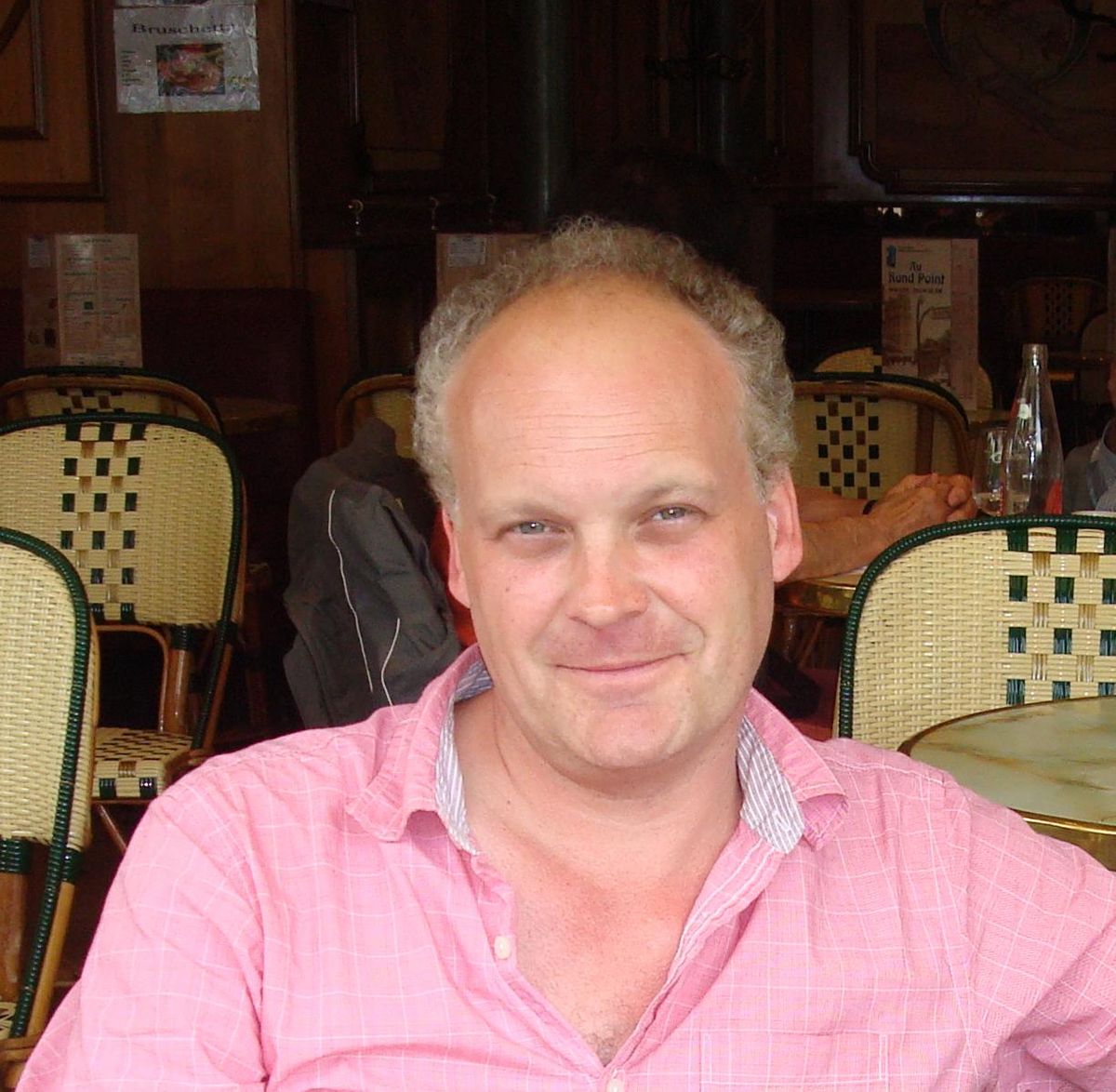
“If I was a poet, how would I write about this?”: In Conversation with Patrick McGuinness
by Philippa Conlon | July 26, 2023
“Losing a parent is something like driving through a plate-glass window. You didn’t know it was there until it shattered, and then for years to come you’re picking up the pieces – down to the last glassy splinter.” That’s Saul Bellow in a 1996 letter to Martin Amis. Later, Amis would repeat the metaphor publicly to discuss the death of his father, Kingsley Amis. The essence, though, remains the same. To lose a parent is to lose that intercessory figure: all of a sudden, the imagined chasm between the child and full maturity is bridged. It’s a reckoning, the unavoidable realisation that mortality is an inherited trait.
‘What was your relationship with your mother like?’ is, admittedly, never a winning opening gambit, being both immediately intrusive and invariably revealing. It does, however, seem the obvious question as I sit down in Patrick McGuinness’s office. His poetry collection Blood Feather (2023) breaks a thirteen-year hiatus from verse. “I got caught up in prose,” he explains. With two novels (one longlisted for the Booker) and numerous academic publications, it’s a plausible excuse. Nevertheless, a quick skim of the poems’ titles invites a more emotional interpretation: ‘Mother as Bird’, ‘Mother as Spy’, ‘Mother as Hostage’, ‘Mother as Novel’, ‘Mother as Perfume’, ‘Mother as Widow’, ‘Mother as Mirror’. She appears in various imaginative guises, ranging from the more familiar image of the parent tidying in tandem with her son’s mess-making in ‘Today is Already Over’ to the patient shrouded in sickness, ‘an illness married to a drug.’ The first section of Blood Feather, ‘Squeeze the Day’, grapples with the mother’s presence and then the effects of her gaping absence.
McGuinness is quick to acknowledge that there is a certain rawness to Blood Feather. The poems, typically short and concise, he says, are like “entry and exit wounds, beautiful, neat little holes and then bloody great craters”. In ‘Mother as Bird’, for example, the maternal wing ‘close[s] the sky’; grief becomes totalising and devastating in its simplicity. Strangely, the sadness seems to suit this sparseness. It comes as something of a surprise, then, when McGuinness tells me that his mother in fact died twenty years ago. He compares this period of poetic gestation to water “being filtered through the rocks and coming out in single drops”. There are “certain things I couldn’t deal with at length”, he admits. So are these poems crystalline, craftily compressed, or are we back to Bellow’s splinters, shards and the jagged edges of loss and mourning? I am, of course, acutely aware that at any moment the interview could easily lurch into something of a Freudian field day, my questions sounding like half-baked invitations for McGuinness to psychoanalyse himself. In a moment of deft deliverance, he adds that “catharsis is often quite a selfish thing.” It’s true, and Blood Feather is no cheap bid for closure, or a reductive reach for filial absolution.
“The dead”, McGuinness drily remarks, “are no less banal than we are.” He goes on to invoke those programmes about “half-fraudulent”, “half-terrifying” occultism where the best that the medium can muster is that the departed thinks that the living’s “new curtains are shit”, or some variations of this morbid mundanity. McGuinness’s ‘poetic projections’ allow for his own dialogue with his mother, but it is a communication haunted by the same incompletion, seized by the same inadequacy. In ‘Visiting Hour’, McGuinness thinks of Dido’s epic snub of Aeneas, the spectral denial of the living, ‘the grammar of the averted gaze’. The collection, as a whole, is characterised by the communion that is never quite realised, the consolation that is consistently negated. Blood Feather, he claims, is like “an unposted letter to someone who will never get it”.
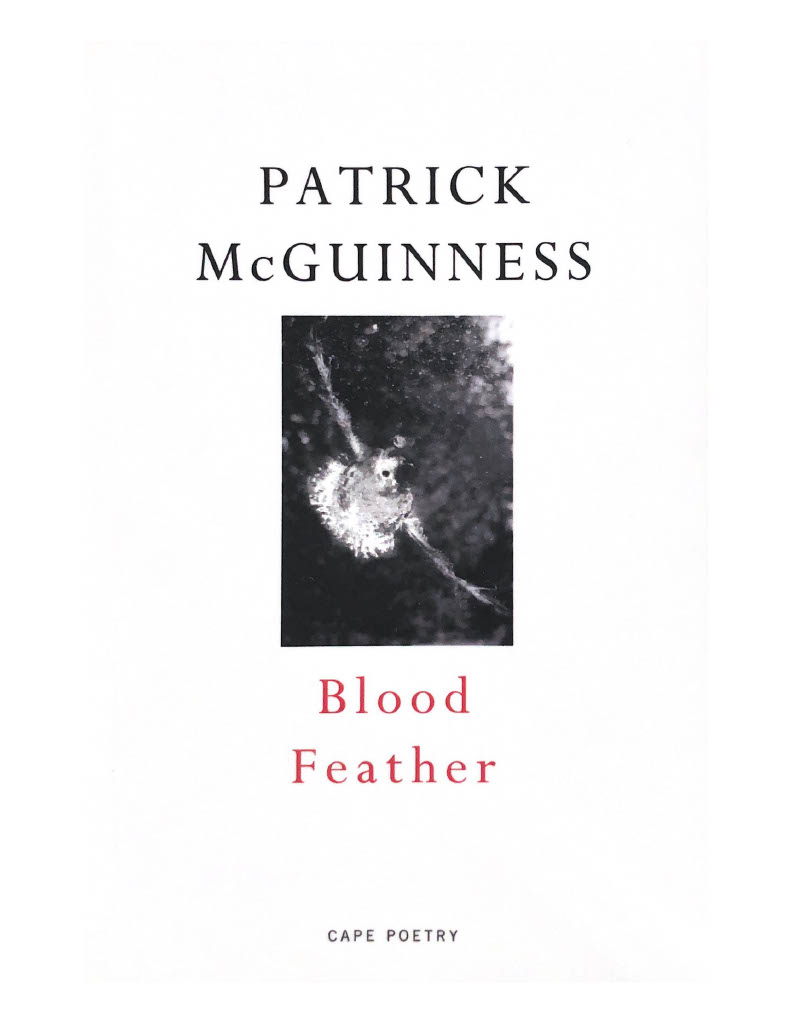
Born in Tunisia to a Belgian mother and an English father before moving to England for school at only nine years old, McGuinness is no stranger to feeling displaced. One senses, he says, that this life both “is and is not for you”. Gesturing round his study, crammed with books and even a makeshift, cardboard replica of a stage, he adds, “my relationship to the accent, voice, and even the life that I have here in Oxford” is something like finding a jacket in a charity shop; it “fits me perfectly but it wasn’t designed for me somehow; it was designed for someone who’s no longer there.” McGuinness is used to adapting his identity, translating not just texts but himself (halfway through our conversation he takes a phone call from his son in Welsh) but, at times, it’s a difficult exercise. “I’m writing back to my mum in the language that I didn’t speak to her”, he notes. The poems themselves are stranded between these rival identities. Snippets of French vie with English. ‘[C]laquemurée’, she says at one point, calling from hospital. ‘Clackmuir’, the next line promptly corrects. If this is a dialogue, it is one where the interpretive stakes are remarkably high as a son struggles to understand, and in turn be understood by, his mother. The footnotes, helpfully offering translations, are linguistic ruptures in the imaginative fabric of the poems. Each one is a jolt, an interruption. “I want the holes and gaps to be there”, McGuinness explains, “everything casting some kind of shadow and void, everything given in one language has to be taken away in the other.”
“Form needs to pay its due to formlessness and mess.” As McGuinness continues, I am struck by how practical he makes the role of the poet sound. For him, words are like “clay, wood, or metal”. As he rifles through notebooks at the leg of his desk to show me page after page filled with jotted-down thoughts, he tells me these will “get chopped and knocked into poetic form”. “Leave the rough edges and dirty bits”, he instructs. When sitting down to write a poem he asks himself, “if I was a poet, how would I write about this?”. The exercise is a far cry from Romantic notions of an all-consuming imagination, from the creativity that, simply by the force of its own genius, demands to be cultivated. In fact, each poem in the collection seems acutely aware of its own prosaic alternative. ‘Factory for Sad Thoughts’ closes on the reflection that ‘[o]f all the poems I’ve ever written, this is the one I didn’t’, and in ‘Prose between Stations’ the ‘raw material’ of the journey ‘thinks of all the contortions it would have to go through to become a poem’ before simply deciding to ‘stay as it is’. McGuinness is sparing with these prose poems. “Any more than two or three”, he laughs, “and you start to piss people off.” Maybe; but they are, nonetheless, both effective and affecting.
A lot of this collection comes from McGuinness’s Real Oxford (2021). While the city was emptied by the effects of the pandemic, he produced a work of non-fiction (accompanied by his own photography) that documents the parts of Oxford that largely go unseen by undergraduates. One of these is Littlemore Hospital, an asylum on the edge of the city. The prose entry for the facility would be transfigured into ‘The Wave’. The name now becomes a ‘plea’, ‘[a] name on bended knee. Increments of wanting, / and of not getting’. With all the imaginative elasticity of poetry, there comes a great deal of compassion. An anonymous patient, a ‘lady in slippers and pyjamas’, morphs into McGuinness’s own mother outside Tooting hospital, twenty years ago. Poetry and prose blur; the objective merges with the deeply personal and the local yields to the universal.
The epigraph of the collection’s final section borrows from Silvina Ocampo: ‘We go leaving ourselves all over’. In Blood Feather, the self splinters and shatters, refracted through the prism of poetry. “I am”, McGuinness nods, “mostly motivated by loss.” From death, the loss of one’s past self to ghost-stations and the demolished cooling towers at Didcot, the poems painstakingly point to all the ways we are animated and agitated by absence. “It’s extremely liberating”, he claims, “I suppose one remains wherever one has been.” And, if Blood Feather is anything to go by, McGuinness’s readers should count themselves lucky that he has left such a paper trail in poetry.∎
Blood Feather (2023) by Patrick McGuinness was published by Jonathan Cape.
Words by Philippa Conlon. Photograph: Handout
